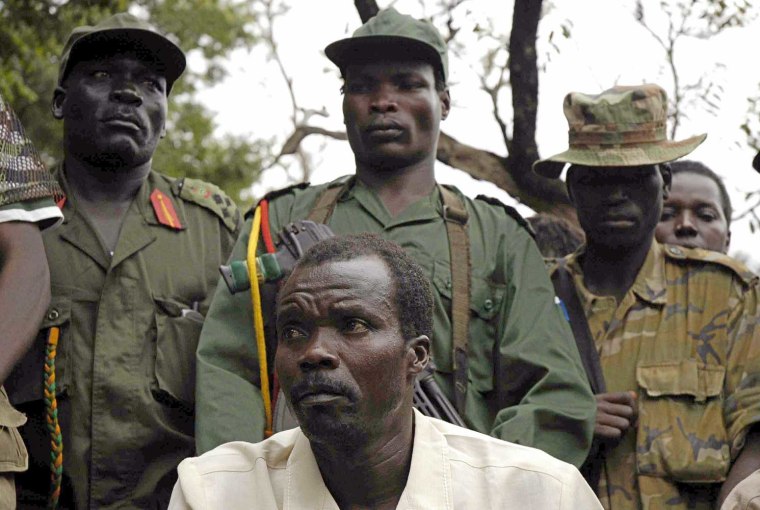The elusive leader of a brutal 19-year Ugandan rebellion held his first formal peace talks with government officials Monday, giving a boost to efforts to end a conflict that has swept up children and killed and maimed civilians.
Joseph Kony, leader of the Lord’s Resistance Army, shook hands with a delegation of 160 officials and lawmakers from northern Uganda and representatives of non-governmental organizations before three holese border.
The camp was decorated in palm leaves as a sign of peace. Journalists were taken there, but were not told exactly where they were, and were not allowed to use their cell phones until they were returned to Sudan.
“For meaningful talks to continue there must be a cessation of hostilities,” the rebels said in a statement after the talks.
Kony had been expected to turn up for the talks Sunday, but sent his teenage son instead, as a gesture of goodwill. His 14-year-old son, Salim Saleh Kony, did not speak to the media.
Kony has yet to meet with the main Ugandan government delegation, led by Interior Affairs Minister Ruhakana Rugunda.
‘The man wants peace’
Before Monday’s talks, Kony met informally with some Ugandan government officials at a secret location Sunday night, said Walter Ochora, the top administrator of the northern Uganda district of Gulu, which has borne the brunt of Kony’s rebellion.
“It was very positive ... The man wants peace,” Ochora told The Associated Press. He said Kony had been in poor health, coughing blood, but was feeling better.
The Lord’s Resistance Army is made up of the remnants of a rebellion that began after Ugandan President Yoweri Museveni took power in 1986.
Its political agenda is unclear. But it has set up rear bases in Sudan and Congo, and has been accused of attacking civilians and threatening stability in those countries. It is known for abducting thousands of children, forcing them to become fighters, servants or concubines. Thousands of civilians have died in the conflict and more than 1 million have been forced to flee their homes.
Kony is under indictment by the International Criminal Court, but Museveni has offered to protect him if the LRA agrees to give up its weapons. The rebels, however, have demanded that they be incorporated into Uganda’s national army.
New York-based Human Rights Watch denounced all calls for amnesty, saying international law rejects impunity for “genocide, war crimes, crimes against humanity and torture.”
